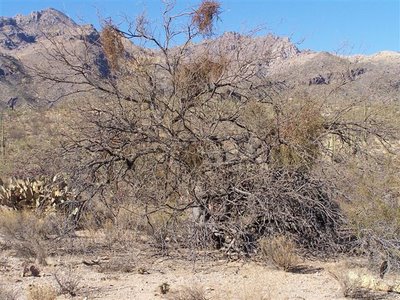 [Image source]
[Image source]For many years I have been interested in an area of psychology that deals with
subpersonalities, sometimes also known as parts (
Internal Family Systems) or aspects. There are many kinds of subpersonalities that can have a lesser or greater impact on the psyche, but most people in the field agree that traumas of all varieties can create a split-off part of the psyche whose job is to manage that trauma and any other event that recalls the emotional context of that trauma.
Most of these subs develop while we are children and lack the adult coping skills necessary to handle tough situations. I would also add -- and this isn't too often mentioned in the literature -- that subs are more common in children whose parents lack the ability to support the child through tough emotions.
As we grow older, these subs lurk in our unconscious, waiting to be triggered by external events or internal stresses that activate their "protection" circuitry. It is really important to remember that subs always arise to help us, even if later in life they are a problem. When a sub is created, it is the psyche's best way -- or only way -- to survive the situation.
I have developed a model that seeks to work with subs using the terminology of
Spiral Dynamics, but that is beyond the scope of this discussion.
Ken Wilber does mention that we can have subs stuck at the lower level memes:
Subpersonalities can exist at different levels or memes, however, so that one can indeed have a purple subpersonality, a blue subpersonality, and so on. These often are context-triggered, so that one have quite different types of moral responses, affects, needs, etc. in different situations.

Ken talks more about subs and their origin in
Integral Psychology. He recommends a book by
John Rowan (
Subpersonalities), and I second that recommendation.
Having established some context, I want to explore a personal example.
The Little BoyAs I have mentioned many times on this site, may father died when I was thirteen years old. This in itself is not terribly unusual in that many kids lose a parent at a young age. What was unusual about my experience is that my mother completely disintegrated -- clinical depression requiring strong pharmaceuticals. She was not only depressed, she was also totally ignorant of how to handle all the details that needed to be handled -- everything from filing insurance forms to dealing with Social Security to identifying the body before it was cremated. No other family members stepped up to help out, so it all fell on me. All the while I was taking care of my little sister and trying to take care of my mother as best I could.
At the time, I felt good that I was able to get through all of the things that had to be done and that various people commented on what a mature young man I was. I felt heroic in the psychological sense and embraced my role as caretaker. What I didn't realize -- I was as much in a state of shock as were my mother and sister -- was the toll this role was taking on my psyche.
I was emotionally stunted. The "
manager" that emerged was strong, reliable, and competent. But his presence "
exiled" another part of me -- the little boy who just wanted to go to school, play soccer, flirt with girls, and not have to deal with anything tougher than homework.
As the manager maintained an appearance of stability, the exile was buried deeper and deeper, and a "
firefighter" emerged to deal with the psychological stress. [These are terms from Internal Family Systems, which recognizes these three basic types of subs.] My firefighter liked to create a numbed feeling as a way to cope with the stress. So I started drinking, smoking pot, and using anything that might dull the pain I was trying to keep buried.
As I grew older, the little boy stayed buried -- or so I thought. As it turns out, any time I have been under a lot of stress or dealing with too much responsibility, the little boy tries to break free and make himself felt. This triggers the firefighter to keep that from happening, but only when the manager is unable to do it himself.
Over the last year or more, I have been working to regain access to that little boy through therapy, meditation, and mindfulness. So my manager is conspiring to free the little boy, which makes my firefighter act up and find ways to distract me from the process. I don't drink or do drugs, so I engage in emotional eating (and I am always aware of it when it is happening because I see it all the time in my training clients), mindless television watching, and anything else that can distract me from the process.
But here is the real issue: when that little boy gets even a little bit free, it becomes almost impossible to get me to do anything more than go to work and do the bare minimum to get by. I put off going to the dentist until I need crowns. I put off my taxes until April 14th. I buy more clothes so I can get by doing laundry every three weeks. I put gas in my car when the needle is on empty. I balance my checkbook about once a month. It goes on and on.
When that little boy gets a foothold in my psyche (and he is a Red meme sub), I don't want any responsibility; I don't want to do anything that isn't about being "in my cave." I become selfish, insensitive, and short-tempered.
When I am at work, he is buried; when I am with my girlfriend, he is mostly buried. But at home, alone, he runs the show some days. This was one of those days.
Working With SubsOne way that I have been trying to access the little boy is through meditation. As I am focusing on my breath and observing my thoughts going by, I am mindful of anything that feels like one of his thoughts. When I identify something, I suss it out and try to isolate it. It becomes the other to my self in such a way that I can get to know it, observe it, talk to it.
If I can separate it from my ego, it no longer is in the driver's seat -- at least for a little while. It gives me a chance to know what it wants, what it needs to be happy.
Anyone can do this with any part of themselves that they want to know better. If you already know your subs or how to access them more directly and with more intent, you can work with any sub you want to know better and find out why it is there, what it needs to become more healthy, and how to unload its burden.
My little boy is less willing to get surfaced. Part of the problem is that he holds a lot of my pain and anger from childhood. My psyche fears that if he is given freedom, he will overwhelm my ego and flood me with pain. Rather than blowing up the dam, I am trying to let out a little of the river at a time.
But I have been blocking the process lately -- working too hard, taking time off from therapy, taking on too many responsibilities. The kid is pissed off.
The task right now is to honor his need for more "being" time and less "doing" time, while also honoring the wisdom of my psyche in recognizing that it isn't ready yet to let the kid back into full awareness.
So there it is. If anyone has actually read this far, it is worth noting that I wasn't clear on any of this until I started typing -- I had clues but no clear path. Now that I am more clear, I know what the next steps are and I know what to look for to keep this from getting worse.















